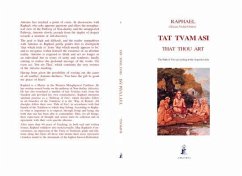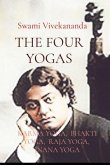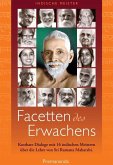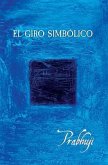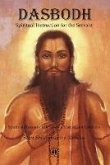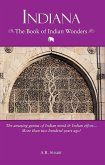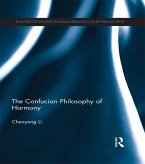The universe is life at many dimensions, many systems of co-ordinates, and the individual combines or synthesises the various systems within his own nature.
The human being is not merely a physical and functional compound: he is thought and also spirit, however threadbare and vague this term may be.
That the universe has many dimensions is a fact which science itself has acknowledged. That the individual has 'faculties' which extend beyond the physical is also something which is coming to the surface in practical ways. On the other hand, to think of a human being as a mere function, a glandular secretion and excretion strikes us as an unreasonable distortion. Restricting the being to its exclusively unilateral and horizontal condition of action strikes us as a levelling-down of its totality, a metallising of consciousness and intelligence on a mere grid of co-ordinates.
This book shows the unfolding of a psychological crisis, an ascent, and a self-discovery. It takes the form of a dialogue: and a dialogue is the meeting of two hearts, an osmosis of waves set in motion by experiences; it is self-bestowal; it is the life-force which creates growth.
A dialogue which is an end in itself is not a dialogue but a release of emotion, a mode of expression, a parade of erudition.
In the dialogue there is no rivalry, no desire, no release of tension.
This realisative dialogue between Raphael and Antonio unfolded over a number of years. It has been adapted to make a complete book, but in actual fact it contained pauses, simple considerations, interventions - sometimes long ones - on the part of Antonio, and periods of silence on the part of Raphael. However, they both have two aims in common: to seek and find, and to withdraw into oneself.
It is worth stating that this book is not scholarly. If the dialogue touches on points of Vedanta philosophy, it is merely expressing the Teaching on which realisation must be based. Throughout the text there is some hint of this.
On the other hand, Antonio's particular mind-set and the specific Teaching of Vedanta gave rise to a dialogue which was at times focused on metaphysical principles; and however protracted the themes were, it was thought right to put together these parts which might be more directly useful to the Western reader.
To all who read this text we offer our hope that they will seek and find fullness within themselves and be able to give it to others who are open to receive it.
The human being is not merely a physical and functional compound: he is thought and also spirit, however threadbare and vague this term may be.
That the universe has many dimensions is a fact which science itself has acknowledged. That the individual has 'faculties' which extend beyond the physical is also something which is coming to the surface in practical ways. On the other hand, to think of a human being as a mere function, a glandular secretion and excretion strikes us as an unreasonable distortion. Restricting the being to its exclusively unilateral and horizontal condition of action strikes us as a levelling-down of its totality, a metallising of consciousness and intelligence on a mere grid of co-ordinates.
This book shows the unfolding of a psychological crisis, an ascent, and a self-discovery. It takes the form of a dialogue: and a dialogue is the meeting of two hearts, an osmosis of waves set in motion by experiences; it is self-bestowal; it is the life-force which creates growth.
A dialogue which is an end in itself is not a dialogue but a release of emotion, a mode of expression, a parade of erudition.
In the dialogue there is no rivalry, no desire, no release of tension.
This realisative dialogue between Raphael and Antonio unfolded over a number of years. It has been adapted to make a complete book, but in actual fact it contained pauses, simple considerations, interventions - sometimes long ones - on the part of Antonio, and periods of silence on the part of Raphael. However, they both have two aims in common: to seek and find, and to withdraw into oneself.
It is worth stating that this book is not scholarly. If the dialogue touches on points of Vedanta philosophy, it is merely expressing the Teaching on which realisation must be based. Throughout the text there is some hint of this.
On the other hand, Antonio's particular mind-set and the specific Teaching of Vedanta gave rise to a dialogue which was at times focused on metaphysical principles; and however protracted the themes were, it was thought right to put together these parts which might be more directly useful to the Western reader.
To all who read this text we offer our hope that they will seek and find fullness within themselves and be able to give it to others who are open to receive it.
Dieser Download kann aus rechtlichen Gründen nur mit Rechnungsadresse in A, D ausgeliefert werden.

